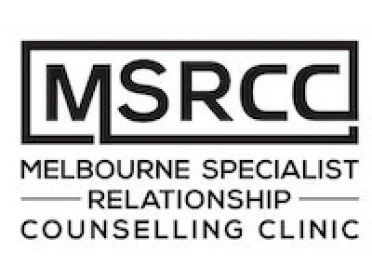
Infidelity can feel like a wrecking ball crashing through your relationship. It leaves both people stunned, unsure of how to move forward. But here’s some hope: it doesn’t have to be the end. With hard work, honest conversations, and some help, many couples find their way back to each other. Surprised? Well, recovery after infidelity happens more often than you’d think.
The Emotional Earthquake of Cheating
When cheating comes to light, it feels like a bomb has gone off. The person who was cheated on might feel a whirlwind of emotions—shock, grief, anger. They might start questioning everything they thought they knew about their partner and their life together. Meanwhile, the person who cheated might be swimming in guilt, shame, and fear about the future. It’s a messy, painful mix for everyone involved.
Can Relationships Survive Cheating?
The short answer is yes, relationships can survive cheating. But it’s not a walk in the park. It takes a lot of effort, open communication, and often professional help. At MSRCC, we’ve seen many couples work through the aftermath of infidelity and come out stronger on the other side. If you’re wondering about your options, our affair recovery counselling might be just what you need.
Getting Back on Your Feet: Where to Start?
So, you’ve decided to tackle this head-on. That’s a brave move. Here are some tips to get you started:
Face the Music
There’s no avoiding it. The person who strayed needs to own up to what they’ve done, show they’re truly sorry, and apologise properly. As for the other half? They need space to let it all out – the hurt, the anger, all of it. It’s not pleasant, but it’s a crucial first step in rebuilding your relationship after cheating.
Keep the Conversation Going
Creating a safe space for proper dialogue is key. It’s about listening—really listening—and trying to see things from each other’s points of view. Avoid defensiveness and finger-pointing—they’ll only make things worse. Good and open communication is the foundation of rebuilding trust, making sure you both feel heard and understood.
Set Ground Rules
It’s time to establish some new rules. Have a proper discussion about what’s acceptable and what’s not when it comes to contact with the other person. Sort out some new guidelines for being open with each other, and address any small issues that might bring back those feelings of betrayal. Clear boundaries help everyone feel a bit more secure.
Prove It Day by Day
It’s all well, and it’s good to say you’ll change, but are you showing it? That’s where the real work begins. Show up consistently, follow through on your promises, and prove you can be trusted. The little things, day in and day out, will gradually rebuild that confidence.
Call in the Experts
Sometimes, you need a bit of outside help. Couples therapy, especially with someone who knows their stuff about affair recovery, can be a game-changer. They can act as a mediator, help you navigate those tricky conversations, and teach you how to rebuild trust. If you’re thinking about taking a break, separation counselling might be worth considering, too.
Real Stories of Hope and Recovery
Many couples have faced similar challenges and found their way back to each other. We’ve seen couples who thought their relationship was beyond repair after an affair. Through counselling, hard work, and commitment, they’ve managed to rebuild trust and create a stronger bond than before.
Other couples have shared how open communication and a willingness to understand each other’s perspectives helped them navigate the aftermath of infidelity. They’ve rediscovered intimacy and companionship by addressing underlying issues and learning new ways to connect.
These stories show that there’s hope for healing and renewal, even when things seem bleakest. While every couple’s journey is unique, with the right support and commitment, positive outcomes are possible.
Practical Tips for Rebuilding Trust
Rebuilding trust after cheating is no small feat. Here are some practical tips to help you along the way:
- Be transparent: Share passwords, check in regularly, and be open about your whereabouts.
- Keep your promises: If you say you’ll be home at 7, be home at 7. Consistency is key.
- Listen without judgement: When your partner shares their feelings, really listen. Don’t interrupt or get defensive.
- Show appreciation: Acknowledge the effort your partner is making. A simple “thank you” can go a long way.
- Be patient: Trust takes time to rebuild. Don’t expect miracles overnight.
Remember, recovery after infidelity is a journey, not a destination. There will be good days and bad days. What matters is that you’re both committed to the process.
You Don’t Have to Go It Alone
If you’re struggling in the aftermath of infidelity, reaching out for help can make all the difference. At MSRCC, we’ve got experienced therapists who can help you navigate this tricky time and work towards a stronger, healthier relationship. Our counselling services offer specialised support for couples dealing with infidelity, helping you find your way back to each other.
With the right guidance, your relationship can not only survive but thrive after infidelity. Why not get in touch with us at MSRCC to explore our affair recovery counselling or general counselling services? We’re here to support you every step of the way, whether you’re dealing with relationship issues or individual concerns. Remember, asking for help isn’t a sign of weakness – it’s a smart move towards healing.
Frequently Asked Questions
Can a relationship be rebuilt after cheating?
Rebuilding a relationship after an affair is challenging but possible. Many couples have managed to navigate this difficult path, resulting in a stronger, more resilient partnership. However, this process demands commitment, patience, and a readiness to address the pain and underlying issues directly.
What steps should we take if we want to recover from infidelity?
Emotions can run high in the early stages of recovery. It’s important to acknowledge and validate these feelings. Open and honest communication is crucial, allowing both partners to express their hurt, anger, confusion, and any remaining love or commitment. Seeking help from a therapist experienced in affair recovery can provide a neutral environment for these conversations and offer tools to navigate this tough time.
How long does it take to recover from an affair?
The time needed to recover from infidelity varies for each couple. It depends on factors like the nature of the affair, both partners’ willingness to engage in healing, and underlying issues in the relationship. Some couples may see progress within months, while others might need years to rebuild trust and intimacy. Patience and dedication are essential throughout this journey.
Can a relationship return to ‘normal’ after cheating?
Expecting a relationship to return to its previous state after infidelity is often unrealistic. The betrayal leaves a mark, and the relationship will inevitably change. However, this doesn’t mean it’s doomed. Many couples create a “new normal” – a relationship that’s deeper, more honest, and more resilient. This involves addressing the causes of the affair, improving communication, and building a stronger foundation of trust and respect.
What are the signs that recovery from infidelity is working?
Signs that recovery from infidelity is progressing include:
- Open Communication: Both partners can discuss their feelings and concerns without blame.
- Increased Trust: Trust gradually returns through transparency and consistent behaviour.
- Enhanced Intimacy: Couples reconnect on a deeper level, sharing vulnerabilities and supporting each other.
- Reduced Conflict: Arguments become less frequent and intense, with more constructive resolution.
- Renewed Commitment: Both partners show a renewed commitment to the relationship and work towards a shared future.
These indicators suggest that the healing process is underway, and with continued effort, couples can rebuild and strengthen their relationship.


